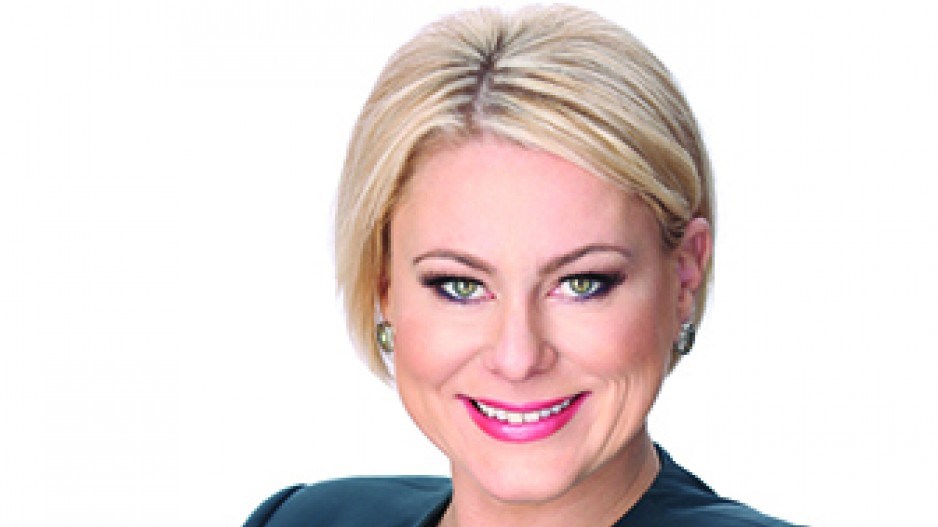So, a global recession is coming. At least, that’s what most people seem to think.
A recent Insights West poll found 62% of British Columbians believe a recession will come sometime in the next 12 months, although 64% also have high confidence in the Canadian economy.
Not all observers think a global economic slowdown will necessarily lead to an all-out recession everywhere.
Lori Pinkowski, senior portfolio manager at Raymond James Ltd., said central banks in the U.S. and Europe are already cutting rates and resorting to quantitative easing, in an attempt to lessen the impact of an economic contraction.
“It is rare to get a major recession when central bankers are easing so aggressively, and if we are wrong and there is one, it is likely to be a shallow recession given how strong the consumer is right now,” Pinkowski said.
The problem with easy money policies that encourage borrowing, however, is that they can induce consumers to take on too much debt.
On average, Canadians have $1.77 in debt for every $1 they earn, according to the Bank of Canada. Three-quarters of that household debt is in mortgages.
Household debt is “our No. 1 domestic financial vulnerability,” Carolyn Wilkins, senior deputy governor for the Bank of Canada, said in an address to the University of British Columbia’s (UBC) Vancouver School of Economics earlier this year.
“There is not much room for Canadians to keep using debt as an instrument to isolate themselves from some of these shocks, because some of these shocks may not be as transitory as we will assume,” said Jose Pineda, an adjunct professor at UBC’s Sauder School of Business.
The people most at risk are those who have a high debt load and get laid off or otherwise suffer a decline in income. Realtors, car salesmen and others who rely on commissions, for example, may not lose their jobs, but they could see their earnings decline in a recession.
The worst kind of debt is credit card debt, so getting that down should be the first priority for Canadians who may be worried about a downturn.
Older Canadians who have been through previous downturns may already be doing what they know they need to do: paying down credit card debt, reducing non-essential spending to build up savings, and perhaps putting off vacations or big-ticket spending.
Of course, that is precisely the sort of behaviour that deepens and prolongs a recession.
“The rational individual action is collectively deleterious,” observes Tsur Somerville, a Sauder School of Business associate professor whose area of research is real estate and housing markets.
As for homeowners, or would-be homeowners, the biggest risk during a downturn may be getting locked into a pre-sales agreement right when the housing market takes a dip.
“The place that can be a real challenge is if you sign a pre-sale contract and prices decline,” Somerville said. “The bank is lending on the current value of the house, not the price you signed for.”
For retirees, or those who are close to retirement, a recession can cause a decline in pension and retirement savings income. Because interest rates have been so low, people with RRSPs may have put more of their investments in higher-yield sectors, like equities.
Those relying on RRSP earnings may want to rethink some of their riskier investments and look for something a little safer and more diversified, at least until stock markets recover from the decline they inevitably suffer in a recession.
“Risk management is of the utmost importance at this stage in life,” Pinkowski said. “They are not earning other income and are retired, [so] it is important to keep safety in mind for their finances, which might mean reducing stocks as we enter late stages in the economic cycle.
“Having exposure to defensive areas like telecommunication, utilities, consumer staple stocks, as well as an allocation to cash and bonds, will definitely help during a recession so that you don’t see too much of a drop in your portfolios.”
She added that, while gold is a favoured safe haven, it doesn’t produce dividends. She therefore recommends that portfolios be weighted in gold by no more than 5% or 10%.
Younger Canadians may be more vulnerable in some cases than older Canadians in a downturn. While they may not have mortgages yet, they may have student debt and car loans, earn less money and have little to no savings and less job security.
To a certain extent, the jobs held by younger people are less recession-proof. They have less seniority and tend to enter and exit the job market more frequently, Pineda said.
“You need to be more careful about keeping your job, keeping a more stable source of income, because that could be where most of the impact will be felt by this younger generation,” Pineda said.
In the event you do lose your job, and don’t get a severance payment, it will take one month before you receive an unemployment cheque, and that is typically only 55% of what you were earning.
It’s therefore advisable that people have at least one month’s worth of expenses tucked away in a savings account, so that they can cover their rent or mortgage payment, utilities, grocery bills and car payments until employment insurance kicks in.




